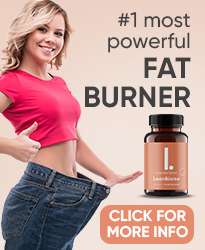
In an era where health and wellness take center stage, the guide to dietary supplements becomes an indispensable resource for anyone looking to navigate the vast world of vitamins, minerals, herbs, botanicals, and more. Offering objective and reliable information on over 100 popular dietary supplements, this comprehensive guide caters to the growing number of individuals seeking to support their health and well-being through supplementation [1][3]. With dietary supplements ranging from amino acids to herbal extracts designed to complement one’s diet, understanding one’s unique nutritional requirements is crucial for making informed choices [3][4].
As more people turn to supplements to achieve their health goals, including weight loss and enhanced wellness, the importance of being well-informed cannot be overstated. This guide to taking supplements serves not only as a desktop reference for health professionals [2] but also assists individuals in evaluating supplement quality, understanding how to use dietary supplements, and aligning their choices with their health objectives. By consulting with healthcare professionals and periodically reassessing their needs, readers can ensure they are making the best decisions for their health [4].
Understanding Your Nutritional Needs
Essential Nutrients and Dietary Supplements
- Vitamins and Minerals: Vitamins are crucial for regulating metabolic functions, with a distinction between fat-soluble and water-soluble vitamins, which are stored differently in the body [5]. Minerals serve as essential inorganic elements that support various bodily functions [5].
- Forms of Supplements: Dietary supplements come in several forms including capsules, gummies, tinctures, powders, and liquids, each designed to supplement the diet in different ways [5].
- Regulatory Standards: Supplements are required to contain only ingredients that are already part of the food supply, ensuring some level of safety and familiarity for consumers [6].
Identifying Nutritional Deficiencies
- Professional Guidance: Before supplementing, it’s advised to consult with a healthcare provider and possibly undertake lab tests like blood tests to pinpoint any specific nutritional deficiencies [7][8].
- Supplementation Goals: Supplements should not replace a balanced diet but should rather be used to fill in nutritional gaps that may exist even with a healthy eating routine [8][9][10].
Dietary Guidelines and Nutrient Intake
- Nutritional Guidelines: The U.S. Department of Agriculture and Health and Human Services publish dietary guidelines every five years, recommending balanced food groups and limited intake of sodium, saturated fats, and sugars [13].
- Understanding Food Labels: Learning to read and understand the Nutrition Facts and Supplement Facts labels can help consumers make informed decisions about their nutrient intake and supplement use [14].
Evaluating Supplement Quality
Key Considerations for Supplement Quality
- Regulatory Oversight and Safety Concerns
- Despite the common use of dietary supplements, the FDA does not evaluate their effectiveness, safety, or quality before they are sold [5][16]. This limited regulation may result in products containing variable amounts of ingredients or even undeclared substances, posing risks to consumers [5].
- To mitigate these risks, it is crucial to purchase supplements from reputable sources and brands known for their adherence to quality and safety standards [5].
- Third-Party Testing and Certification
- Look for products that have undergone third-party testing by recognized organizations such as NSF International, U.S. Pharmacopeia (USP), or ConsumerLab. These groups test supplements for ingredient accuracy, contamination levels, and adherence to claimed benefits, providing a higher level of trust and safety [16].
- Certifications like USDA Organic, Non-GMO Project Verified, or NSF Gluten-Free also offer additional assurance about a product’s quality and purity [17].
- Manufacturing Practices and Ingredient Transparency
- High-quality supplements are typically manufactured in facilities that adhere to the FDA’s Current Good Manufacturing Practices (cGMPs), ensuring that they are produced in a safe and controlled environment [18].
- It is also advisable to opt for supplements that clearly state all active and inactive ingredients on their labels to avoid any with unnecessary additives or artificial substances [5].
By carefully evaluating these factors, consumers can make more informed decisions about the supplements they choose to incorporate into their health regimen.
Reading Labels and Understanding Ingredients
Understanding the “Supplement Facts” Panel
- Label Basics:
- Serving Size and Servings Per Container: These indicate how much of the supplement is recommended per serving and how many servings are in the entire package [22].
- Amount Per Serving: This details the specific amount of each ingredient included in a single serving [22].
- % Daily Value (%DV): Provides insight into how a nutrient in a serving of the supplement contributes to a daily diet [24].
- Ingredient Details:
- Additional Information:
- Allergen Information: Labels must declare if any major food allergens are present [18].
- Claims and Warnings: Labels may contain claims about health benefits which must be supported by scientific evidence. Be wary of any supplement claiming to cure or treat diseases, as this is not allowed under U.S. law [17][22].
Key Considerations When Reading Labels
- Bioavailability and Ingredient Form: Understanding the form of the nutrient can influence how well it is absorbed by the body. For example, some minerals are better absorbed in chelated form [8].
- Interaction Warnings: Consider how the supplement might interact with other medications or supplements [8].
- Certifications and Quality Seals: Look for seals from NSF International, USP, or ConsumerLab, which indicate testing for quality and purity [25].
Practical Tips for Consumers
- Verify Claims: Ensure any health claims are backed by credible scientific evidence [22].
- Check for Expiration Dates: While not mandatory, many manufacturers voluntarily provide this information to help indicate the product’s shelf-life [18].
- Understand “Natural” Labels: Terms like “natural” do not necessarily mean the product is safe or effective. Similarly, “standardized” does not guarantee consistency across all batches of the product [20].
Consulting With Healthcare Professionals
Engaging Healthcare Professionals
- Initial Consultation:
- Before starting any new supplement regimen, it is essential to consult a healthcare professional, especially for individuals with pre-existing conditions or those on medication [16][17]. This step ensures that the chosen supplements will not adversely interact with medications or exacerbate health conditions.
- A primary care physician can assess your overall health, review current medications, and determine if supplements are necessary or if dietary changes could suffice [26].
- Specialized Advice:
- For tailored dietary advice, consulting a registered dietitian or nutritionist is beneficial. These professionals specialize in nutrition and can provide personalized guidance based on your health history and nutritional needs [26].
- In cases of specific health concerns, such as heart disease or diabetes, a specialist healthcare provider can offer more focused advice [26].
- Pharmacist Consultation:
- Pharmacists are a valuable resource for understanding potential interactions between supplements and prescription medications. They can provide insights into the safety and efficacy of supplements [19][26].
- It is advisable to discuss any new supplements with a pharmacist to avoid adverse interactions and to ensure that the supplements meet safety standards [19].
By consulting with various healthcare professionals, individuals can make safer and more informed decisions about incorporating supplements into their health regimen.
Considering Your Health Goals
Identifying and Aligning Supplements with Specific Health Goals
- Set Clear Health Objectives: Before selecting supplements, clearly identify your health goals, whether it’s improving sleep, reducing anxiety, or enhancing natural immunity [21]. Understanding these goals helps in choosing supplements that are most likely to be beneficial.
- Address Specific Health Conditions: Supplements can play a role in managing conditions like heart disease, diabetes, or chronic pain. For instance, omega-3 fatty acids are often recommended for heart health, while glucosamine may be beneficial for osteoarthritis [5].
- Consult Healthcare Providers: Always discuss your health objectives and potential supplement use with a healthcare provider to ensure they align with your overall health strategy and do not interfere with existing medications [16][17].
Understanding Supplement Interactions and Safety
- Be Aware of Interactions: Supplements can interact with medications and other supplements. For example, St. John’s Wort can reduce the effectiveness of birth control pills and certain antidepressants [20].
- Consider Safety and Side Effects: Some supplements can be toxic or cause adverse effects if taken in excessive amounts, such as vitamin D [9]. Always adhere to recommended dosages and consult healthcare professionals if unsure.
Optimizing Supplement Efficacy
- Choose the Right Form for Bioavailability: Different forms of nutrients can affect their absorption and effectiveness. For example, chelated minerals may be more
Staying Informed and Reassessing Periodically
Regularly Update Your Knowledge
- Stay Updated Through Reputable Sources: Continuously educate yourself about dietary supplements by consulting science-based information from credible resources such as the NIH National Center for Complementary and Integrative Health (NCCIH), Mayo Clinic Drugs and Supplements, and the U.S. Food and Drug Administration’s Information for Consumers on Using Dietary Supplements [9].
- Follow Trusted Organizations: Engage with reputable health and nutrition organizations on social media and subscribe to updates from the American Botanical Council or the Natural Medicines Comprehensive Database to stay informed about the latest research and safety updates [8][9].
Evaluate and Reassess Your Supplement Use
- Regular Health Assessments: Periodically review your health status and supplement regimen with healthcare professionals to ensure that your supplement intake aligns with your current health needs and goals [3].
- Monitor for Changes and Side Effects: Be vigilant about any new symptoms or changes in your health that could be linked to supplement use. High doses or incorrect combinations can increase the risk of side effects, and interactions with prescribed medications could alter their effectiveness [10].
Utilize Online Tools and Reporting
- Report Adverse Events: If you experience any adverse effects from supplements, report these to the FDA via their online resources. This not only helps in your case management but also contributes to the safety monitoring of dietary supplements [2].
- Research Before Buying: Before purchasing any supplement, research its efficacy and safety. Be skeptical of supplements that lack scientific backing and always verify claims through peer-reviewed studies [8][20].
Conclusion
Throughout this guide, we’ve navigated the complex landscape of dietary supplements, shining a light on the importance of understanding one’s unique nutritional needs, the criticality of evaluating supplement quality, and the intricacies of reading labels accurately. This compendium serves not just as a beacon for those looking to supplement their diets effectively but also underscores the necessity of consulting healthcare professionals to align any supplementation with individual health goals and to avoid potential adverse interactions.
As we conclude, it’s paramount to remember that supplements are meant to complement, not replace, a balanced diet. Staying informed, through reputable sources and periodic reassessments with healthcare providers, is essential for ensuring that dietary supplements contribute positively to one’s wellness journey. Armed with knowledge and critical awareness, consumers can make empowered decisions about incorporating supplements into their health regimen, thereby enhancing their overall well-being in a safe and informed manner.
FAQs
How should I go about selecting a dietary supplement?
When choosing a dietary supplement, it’s important to first determine if you actually need the nutrient the supplement provides. Consider if you can obtain this nutrient from food sources before opting for a supplement. Always consult with your healthcare provider to ensure the supplement is appropriate for your health needs. It’s also crucial to check for third-party testing and verify the active ingredients in the supplement.
What are the key considerations when picking a supplement?
When selecting a supplement, ensure you assess its safety and efficacy, which can often be confirmed through third-party testing. Be mindful of the dosage as more isn’t always better; follow recommended amounts. Also, consider the chemical composition of the supplement to ensure it meets your body’s needs.
What guidelines should I follow to choose a quality supplement?
Opt for supplements that are certified by reputable organizations such as NSF International, US Pharmacopeia, Underwriters Laboratory, or Consumer Lab. These certifications help ensure that the supplement contains exactly what the label states and is free from harmful ingredients.
How can I determine which supplements are necessary for me?
Before starting any new supplements, it’s advisable to consult with a healthcare provider. They can perform tests to check the levels of vitamins and minerals in your body, which can help determine what supplements you might need and the appropriate daily amounts. This ensures that the supplements you take are both safe and beneficial for your health.
References
[1] – https://www.eatrightstore.org/product-type/books/health-professionals-guide-to-dietary-supplements
[2] – https://www.eatrightstore.org/product-type/ebooks/health-professionals-guide-to-dietary-supplements-ebook
[3] – https://premiumhealth.us/how-to-choose-a-dietary-supplement/
[4] – https://willner.com/articles/how-to-choose-nutritional-supplements
[5] – https://www.healthline.com/nutrition/how-to-choose-high-quality-vitamins-and-supplements
[6] – https://www.usada.org/wp-content/uploads/supplement-guide.pdf
[7] – https://www.silversneakers.com/blog/why-its-so-important-to-consult-your-doctor-before-taking-supplements/
[8] – https://longevity.stanford.edu/lifestyle/2024/03/11/considerations-when-choosing-supplements/
[9] – https://www.self.com/story/supplement-considerations
[10] – https://ods.od.nih.gov/factsheets/WYNTK-Consumer/
[11] – https://www.ncbi.nlm.nih.gov/pmc/articles/PMC8431076/
[12] – https://openoregon.pressbooks.pub/nutritionscience/chapter/8c-dietary-supplements/
[13] – https://familydoctor.org/vitamins-and-minerals-how-to-get-what-you-need/
[14] – https://www.fda.gov/food/nutrition-facts-label/daily-value-nutrition-and-supplement-facts-labels
[15] – https://familydoctor.org/dietary-supplements-what-you-need-to-know/
[16] – https://www.consumerreports.org/health/supplements/how-to-choose-supplements-wisely-a2238386100/
[17] – https://www.newchapter.com/wellness-blog/nutrition/how-to-read-a-vitamin-label/
[18] – https://fullscript.com/blog/reading-supplement-labels
[19] – https://renuerx.com/general-health/the-importance-of-consulting-a-pharmacist-before-starting-a-supplement/
[20] – https://www.nccih.nih.gov/health/tips/tips-what-consumers-need-to-know-about-dietary-supplements
[21] – https://thewellnesscollections.com/wellness/how-to-pick-the-right-dietary-supplements-for-you/
[22] – https://www.healthline.com/nutrition/how-to-read-supplement-labels
[23] – https://www.fda.gov/food/nutrition-facts-label/how-understand-and-use-nutrition-facts-label
[24] – https://www.seekinghealth.com/blogs/education/how-to-read-supplement-labels
[25] – https://issuu.com/priyankakevinmax/docs/the_ultimate_guide_to_choosing_the_right_dietary_s
[26] – https://smrtrcms.com/who-should-be-consulted-before-starting-a-new-nutritional-supplement-regimen/
[27] – https://www.webmd.com/diet/features/what-vitamin-should-i-take
[28] – https://www.joinsequence.com/articles/how-to-choose-a-dietary-supplement














